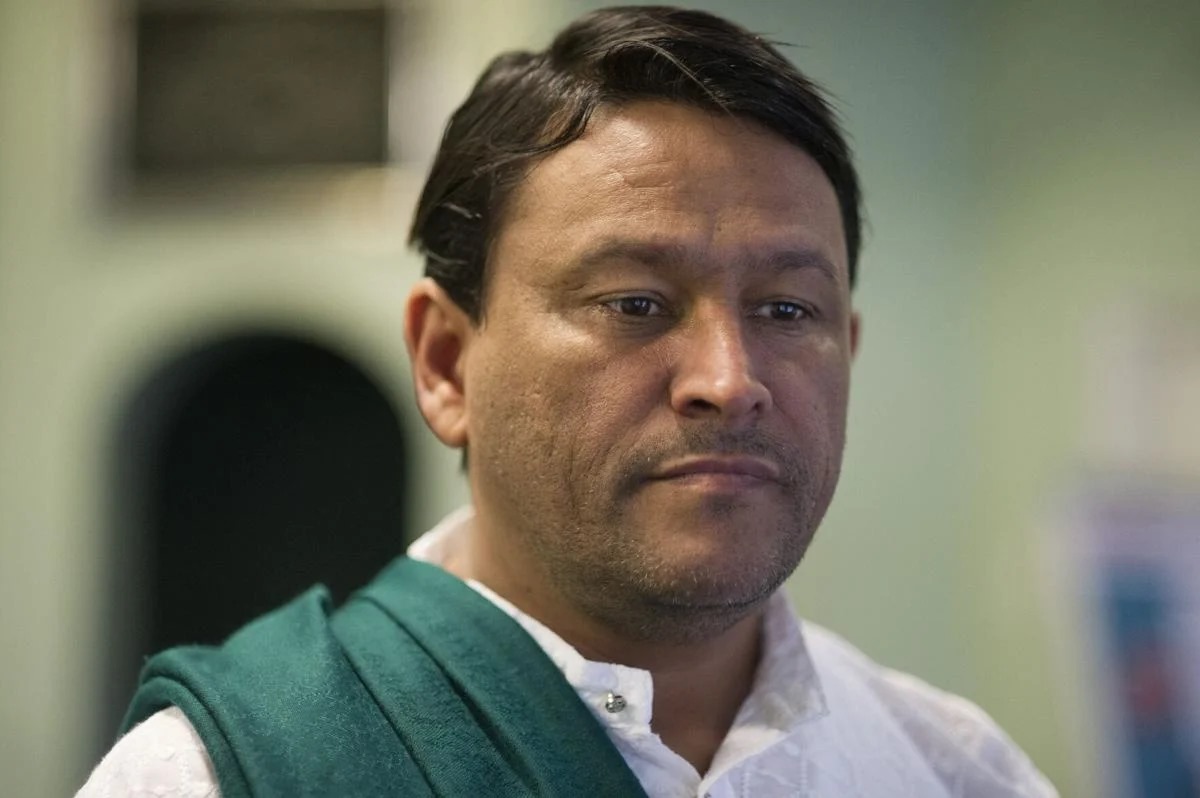
Muhsin Hendricks the world’s first openly gay imam has been shot dead in a South African ambush (The Tribune)
by Mick the Ram
A pioneering figure who had previously been dubbed the world’s first openly gay imam, has been shot dead in South Africa in what rights groups fear could be a hate crime.
Muhsin Hendricks, a 57-year-old cleric, ran a mosque in Cape Town intended as a safe haven for gay and other marginalised Muslims.
He was killed on Saturday morning after the car in which he was travelling through Bethelsdorp, near the southern city of Gqeberha – formerly known as Port Elizabeth – was ambushed.
Police reported that two unknown suspects with covered faces got out of a vehicle and started firing multiple shots through the back passenger window of Mr Hendricks car.
Hendricks came out as gay in 1996, which shocked the wider Muslim community in Cape Town and elsewhere.
Although countries such as Singapore, Barbados, and Antigua and Barbuda have in recent years moved to improve rights for LGBTQ people, there are still as many as 64 countries worldwide who have laws which criminalise homosexuality and almost half of these are on the continent of Africa.
Shootings are common in South Africa where murder rates, which are already among the highest in the world, are at a 20-year high.
Planned attack
The details of the attack emerged through security footage that was shared on social media. It shows a silver-coloured Hilux double cab pulling up at around 10am local time and blocking the gold-coloured VW TRoc in which Mr Hendricks was travelling, just as it was about to leave.
The angle of CCTV footage reveals what happened from one side of the road as an assailant jumps out of the car and runs to the ambushed vehicle before shooting repeatedly through the back passenger window.
Tribute from community
News of Hendricks’ death has sent shock-waves through the LGBTQ+ community and beyond, prompting an outpouring of tributes from across the globe.
Julia Ehrt, executive director at the International Lesbian, Gay, Bisexual, Trans and Intersex Association, said: “He supported and mentored so many people in South Africa and around the world in their journey to reconcile with their faith and his life has been a testament to the healing that solidarity across communities can bring in everyone’s lives.”
Condemnation from Muslim Council
Mr Hendricks’ work challenged traditional interpretations of Islam and championed for a compassionate and inclusive faith.
The Muslim Judicial Council of South Africa (MJC) “unequivocally” condemned the killing in their statement: “It has been alleged that the killing may have been motivated by hatred towards Muhsin Hendricks due to his views on same-sex relationships.
“While the MJC has consistently maintained that Muhsin’s position is incompatible with Islamic teachings, we unequivocally condemn his murder and any acts of violence targeting members of the LGBTQ community, or any other community.”
Discrimination fight
South Africa’s post-apartheid constitution was the first in the world to protect people from discrimination because of their sexual orientation and in 2006, became the first country in Africa to legalise same-sex marriage.
Many of the laws criminalising homosexual relations actually originate from the British colonial times and although the original British laws applied only to men, countries that criminalise homosexuality today also have penalties for women who have sex with women.
Death penalty still a punishment in some countries
The death penalty is the legally prescribed punishment for same-sex sexual acts in Brunei, Iran, Mauritania, Saudi Arabia, Yemen and in some northern states of Nigeria. In Afghanistan, Pakistan, Qatar, Somalia, and the United Arab Emirates there is no legal clarity and the death penalty could be applied.
Sadiq Lawal, a gay Muslim man living in Nigeria, said Hendricks had made such an impact as he had made “the impossible possible” before adding: “He’s a mentor to many queer Muslims in Africa, especially in Nigeria, because of religious extremism – I’m still in shock and devastated.”
In Africa, same-sex marriages and civil unions are only legal in South Africa, and the French Islands of Mayotte and Reunion.






Another long story but I get the just.
Let me just save my comment and go walk me fish
Violence is definitely always wrong in these situations, but in a way his actions may have “provoked” the killers, not because he was gay, but because he was pushing for it in his religion. If he disagreed with the religion, why didn’t he just leave or start his own religion? Why become a spiritual leader and then encourage people to go against their own faith system? That was, in a way, an act of cruelty to the members who showed up expecting to hear traditional teachings. I don’t know anything about the law in those countries but provocation is often a defence in murder cases.
Why do people always have to mention that laws were ‘colonial’? Just because some bad things were done during ‘colonial’ times does not mean that everything from those times was bad. In ancient times people got stoned for those lifestyles; so being imprisoned during ‘colonial’ times could be considered an upgrade. Now, it is recognized that such persons should not be imprisoned. However, that does not mean that the lifestyle is good or should be encouraged. Instead, resources should made available to such persons to get the help they need to address underlying issues and adjust their incorrect mindset.